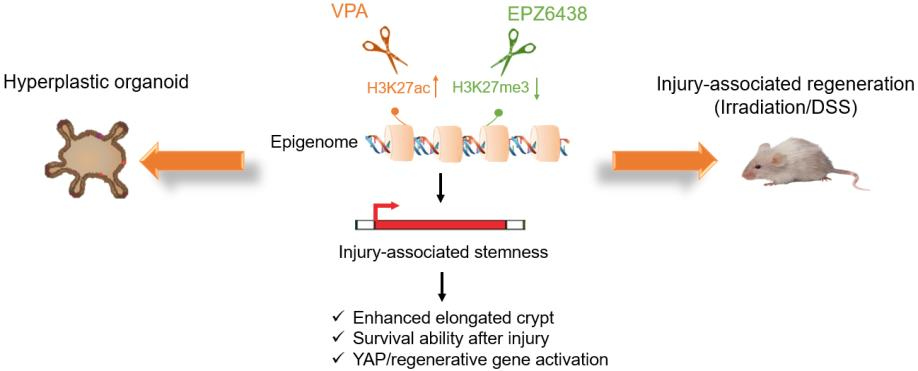New Achievements of PKU Medicine---Construction of New Organoids with Regeneration Ability
On January 9, 2021, Deng Hongkui research team and Xu Jun research team of the Stem Cell Center of PKU School of Basic Medical Sciences published a research paper entitled "Establishment of internal organic cultures modeling injury associated intestinal regeneration" in Cell Research, in which a new type of small intestinal organoid with injury regeneration characteristics was constructed in vitro. The research provides a new in vitro model for the study of organ regeneration, and also reveals the important role of epigenetic reprogramming based on small chemical molecules in organ regeneration.
The capacity of 3D organoids to mimic physiological tissue organization and functionality has been widely used in the research of functional tissue induction, disease modeling, drug screening and so on and has become one of the most important breakthroughs in the field of regenerative medicine in the past decade. However, currently organoid preparation technology has obvious defects. How to establish an organoid culture system that can capture damaged stem cells in vitro is a big challenge for organoid research and application.
In order to solve this problem, Deng Hongkui research team used the small intestinal organoid model widely used in organoid research, screened chemical small molecules and cytokines, and established a new culture condition (8C for short) to induce the expression of injury-associated regeneration genes in small intestinal organoid, and grew a more complex 3D structure.

Small chemical molecule mediated epigenetic reprogramming promotes the regeneration and repair of small intestinal organoids
This study established a new organoid model in vitro, which solved the problem that organoid technology could not mimic the changes of organs and tissues under the condition of injury-associated regeneration in vitro. This model can capture and maintain the damaged stem cell subsets in organ regeneration, and has the ability of efficient expansion and long-term maintenance in vitro. It provides a new way to study organ regeneration, establish disease injury model and conduct drug screening by means of organoid technology.
original link:https://rdcu.be/cdf6N
Written by: Wu Zhaoxia
Edited by: Liu Xin


